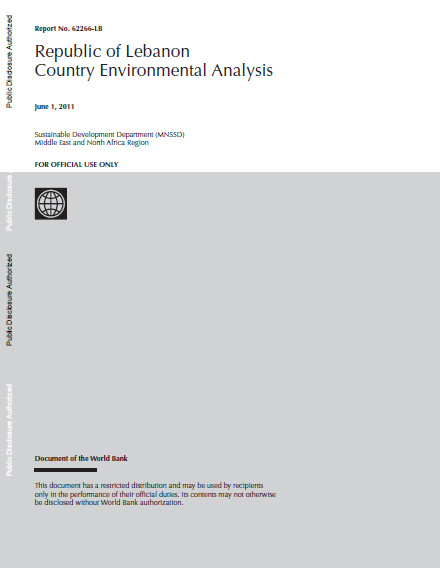Republic of Lebanon - Country Environmental Analysis
 |
report Jun 2011 ; 162 pages
Ed. World Bank - Washington
Downloadable format: PdF
Downloadable from the publisher
Editor Presentation
Abstract:
Environment has remained a secondary priority, characterized by an uncompleted legal and institutional framework as well as by ineffective policies to address the challenges and political constraints to deliver reforms. These challenges are:
-Regional disparities in poverty levels
-There are still continued pressures on Lebanon’s natural resources, especially water, of which 64% is for agriculture and 26% is for domestic demand with 1-2 days a week limited access of potable water due to poor services.
-Wastewater connections covered 66% of households in 2007, but wastewater treatment is lagging behind.
-Municipal solid waste collection seems to have been resolve, whereas disposal remains a persistent issue.
-High urban pressure on the Lebanese coast line is witnessed in most of its 225 km.
-The Governance system is based on a special interest group approach.
Target Audiences:
Cooperation actors , Engineer, designer , Economist , Local and national decision makers
Keywords: |
environment (CI) (DT) (ET) (ope) , sanitation (CI) (DT) (ET) (ope) |
Country: |
Publisher/Broadcaster: |
|
World Bank - Washington - Usa |
If there is a broken link, we will be pleased to receive a message: communication@pseau.org